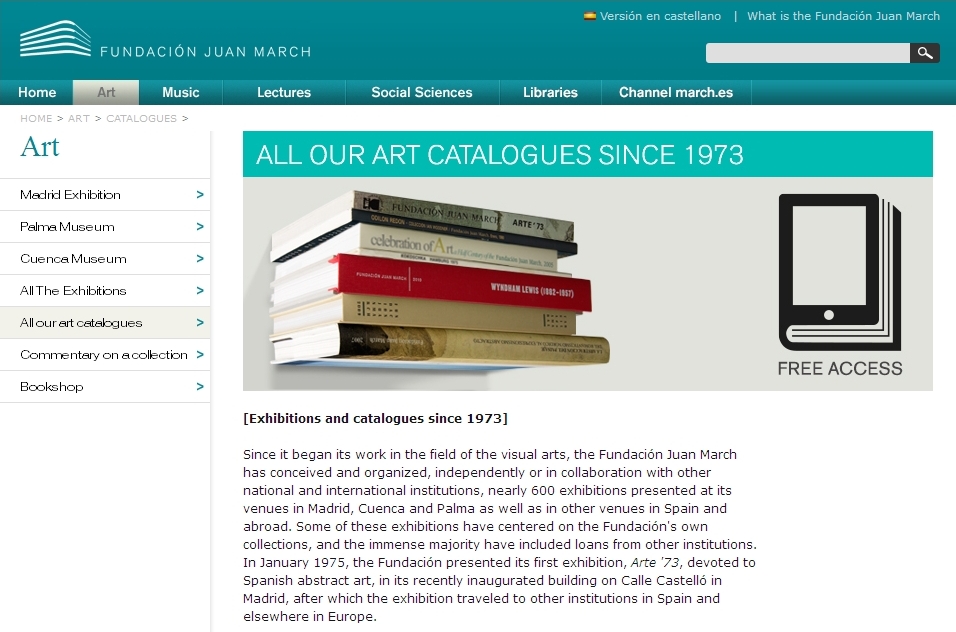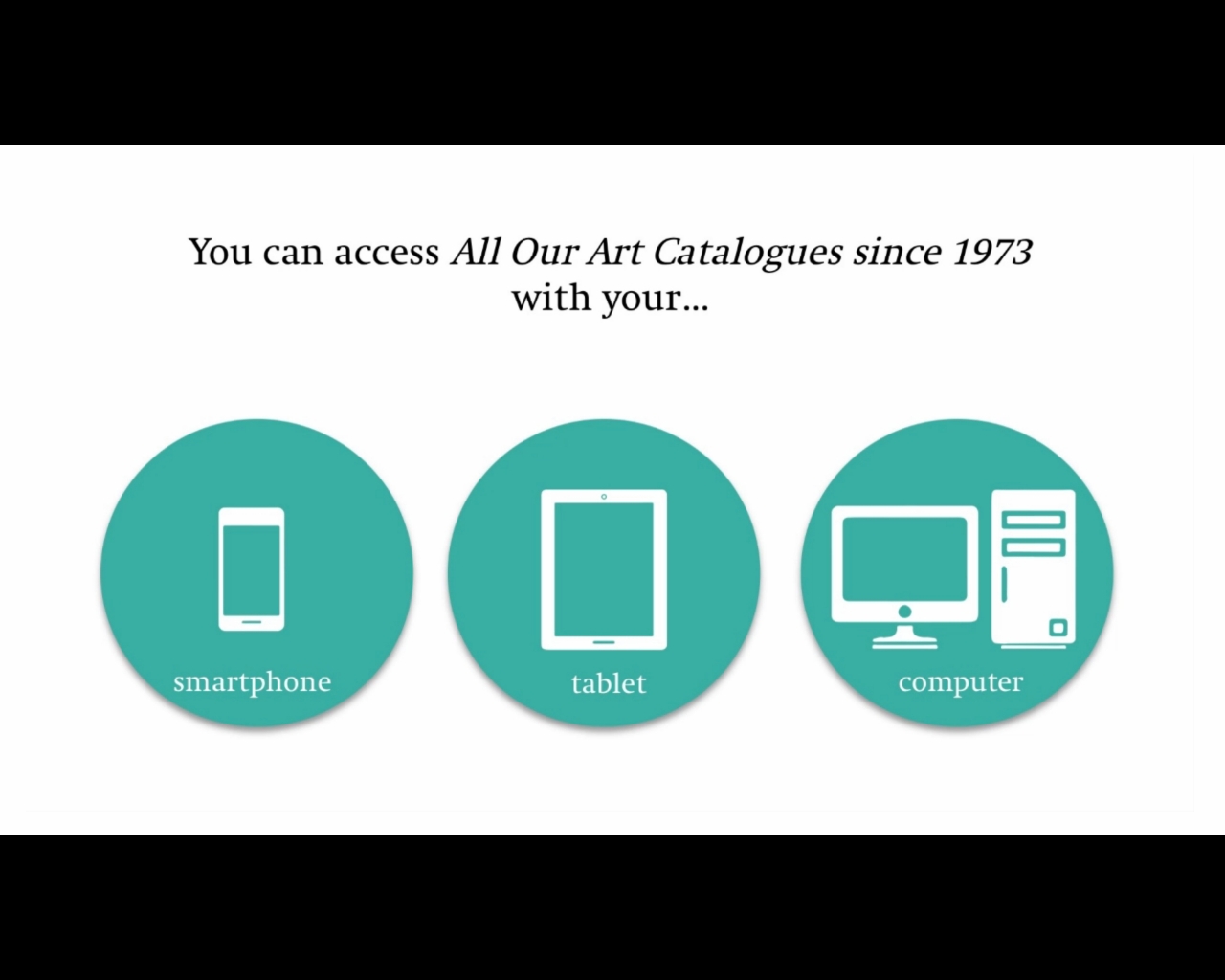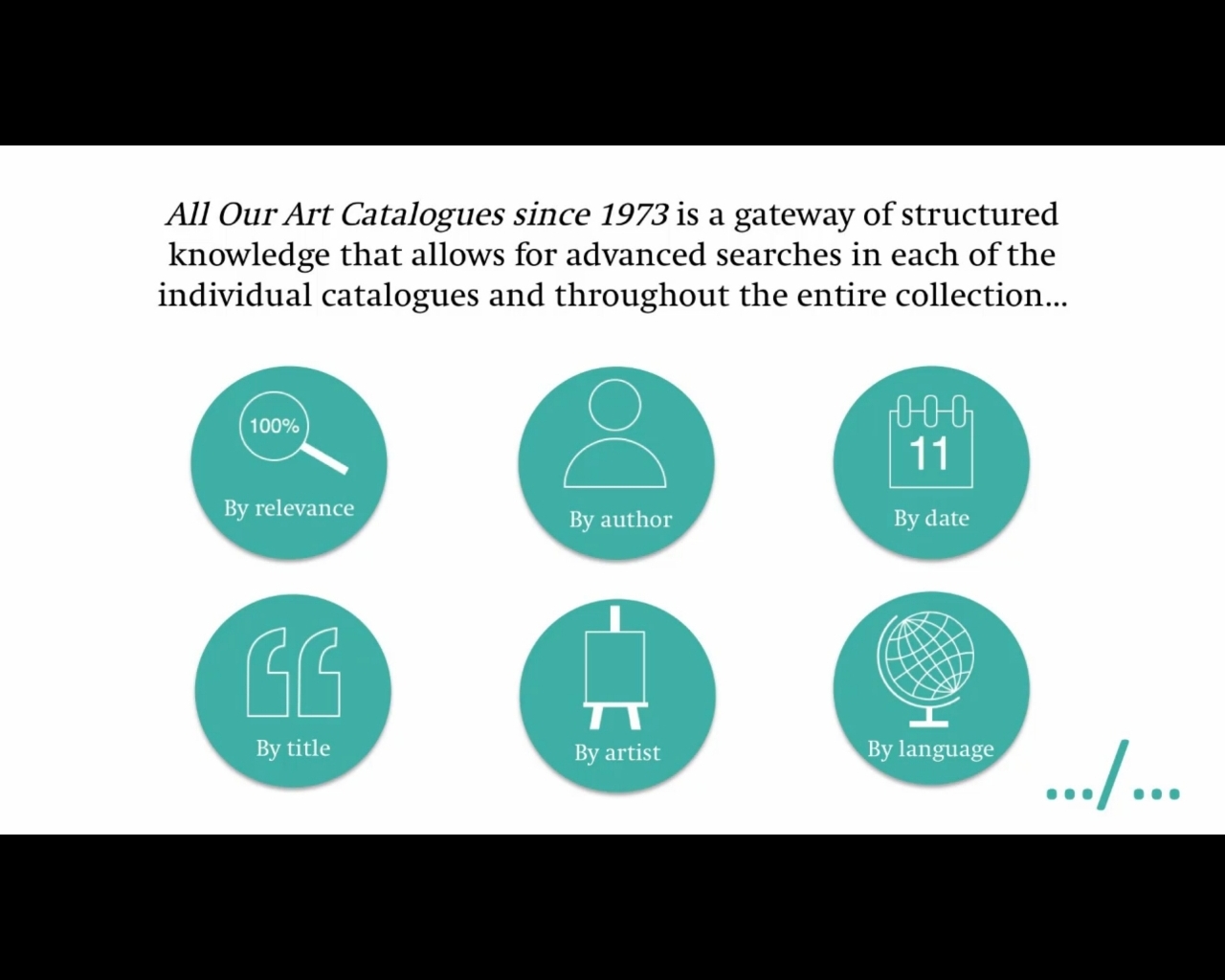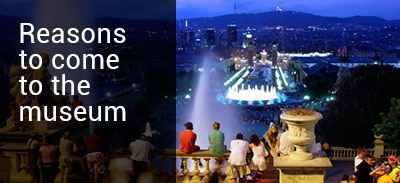Montse Gumà
Making all the art catalogues of the Foundation available from 1973 until the present day has been a major challenge and one that has been achieved in less than two years by a multi-disciplinary team. This was explained to us in a working session among museum professionals -mostly from the museums that make up Articket- with the creators of “All our art catalogues since 1973” from the Fundación Juan March. We were able to see how a very specific need, that of having a digital repository, ended up becoming such a major project and one which has turned the institution into a reference within the digital field in our country. The basic aim: allow users free downloading of texts and browsing the catalogues, both for academic research and for teaching. The goals of these being:
- diffusion
- open access
- spreading the knowledge
- a tool for research and teaching
- digital preservation
An interdisciplinary project
“All our catalogues since 1973” is a very thorough project, led by the Library and the Art Department. They detected the need for the digital repository so as to preserve the archives and to guarantee the accessibility, and managed the interdisciplinary project. From the moment of its creation, in July 2012, until it was up and running in February 2014, different departments have worked on it, in a coordinated way:
- the Library has collected all the catalogues and has carried out an exhaustive re-cataloguing designed in terms of the necessary metadata for the archiving and retrieving of digital archives, and has analysed the formats and data to be used;
- Exhibitions (including Publications) contributes and decides on the contents, both of the catalogues as well as the complementary publications to be digitised, and deals with the managing of the author rights and image rights;
- Digitisation coordinates the digitising of the contents and manages the application of the OCR and the watermarks of the images, and
- Information Systems deals with the management and maintenance of the digital repository and of the development and implementation of the website.
The project has also been exemplary in terms of the process prior to the decision-making that affects the Foundation as a whole, and the revisions and changes, if required, of the working procedures.
How “All our art catalogues since 1973” started up
When the project was set in motion, more than 300 websites of art centres were analysed so as to define the project: which aspects and functionalities of other portals and websites were either accepted, rejected and/or to be improved, a whole decision-making process was begun based in the formulation of questions prior to the beginning of the project:
- What is the most convenient digital repository?
- Open source or proprietary software?
- Multi-platform portal?
- Which metadata should be included?
- A portal website only for catalogues or also for complementary publications?
- Inclusion also of the catalogues of the travelling material?
- Which are the most common formats of digital archives?
- What are the necessary formats according to the different uses intended for the archives generated and also for future needs?
- What type of visor should be used?
- What criteria in terms of advanced search should be included?
- Should all the Library collection be digitised?
- Is the use basically foreseen for research and teaching?
- Should all the content be downloadable and printable?
After a process of analysis, the Foundation opted for Islandora, an open source system for digital repositories, based on FEDORA (Flexible Extensible Digital Object Repository Architecture), an architecture for the management of digital assets which is interoperable and extensible, on which the digital repository is built.
The system was completed with the indexing engine Solr and with Drupal (just like our website!) for generating the website interface. At the same time, they opted for a multi-platform system, adaptable for consultations for the desktop, tablet and mobile.
The portal published
The result of all of this work is a portal that counts on the contents of 180 catalogues of exhibitions, organised by the Fundación Juan March since 1973 in its different venues and premises of Madrid, Conca and Palma. It is continually updated: with a few exceptions, all the catalogues are added that have been published on paper once one year has passed since the closure of the exhibition or once the printed copies of the edition have run out, and it has been checked that there are no copies left with the distributors. If there are any paper copies available for sale in the Fundación Juan March, you can also buy them online. According to figures from the website of the Fundación Juan March, there are more than 27,000 pages accessible, as well as more than 400 authors and the images of 18,000 works by around 1,400 artists.
It has a system of simple search and advanced search, which allows you to browse and search the whole portal and in each of the pages of the catalogues as well as a system of recommendations based on the searches users have carried out. The results of the search can be filtered by date, by relevance, by title and by language, and the search can also be complemented by an index of authors and an index of artists.
Some figures in terms of use
From March 2014 until May 2015 more than 75,000 website sessions were offered, of which 60,000 were from Europe, 15,000 from America and the rest were from other continents. During the same period, there were around 50,700 visits, some 26,000 downloads and about 7,000 visor visits.
One thing that is suggestive is the initiative of asking users that use this database as a source in their publications and their studies, to communicate their works to the Fundación Juan March, with the aim of incorporating them into the specialised bibliography of the Library. This is a good way to help future users, to share content and to collaborate in the work of the Library.
We now know what happens to the books (when they run out or finish, or beforehand), so we can give them a second digital life. And this second digital life goes far beyond just becoming enriched PDFs. From here, we would like to congratulate the team of the Fundación Juan March on the excellence of the project of digital catalogues, and to pass on our gratitude to Paz Fernández, director of the Library, and Luis Martínez, data analyst and coordinator of the digital repositories of the Library, for sharing their ‘behind-the-scenes’ knowledge with us.
Related links
Online Scholarly Catalogue Initiative, Getty
Read Free Digital Art Catalogues from 9 World-Class Museums, Thanks to the Pioneering Getty Foundation, OpenCulture 2014
Global Audiences, Zero Visitors: How to measure the success of museums’ online publishing, Rhizome 2015
Projectes digitals












